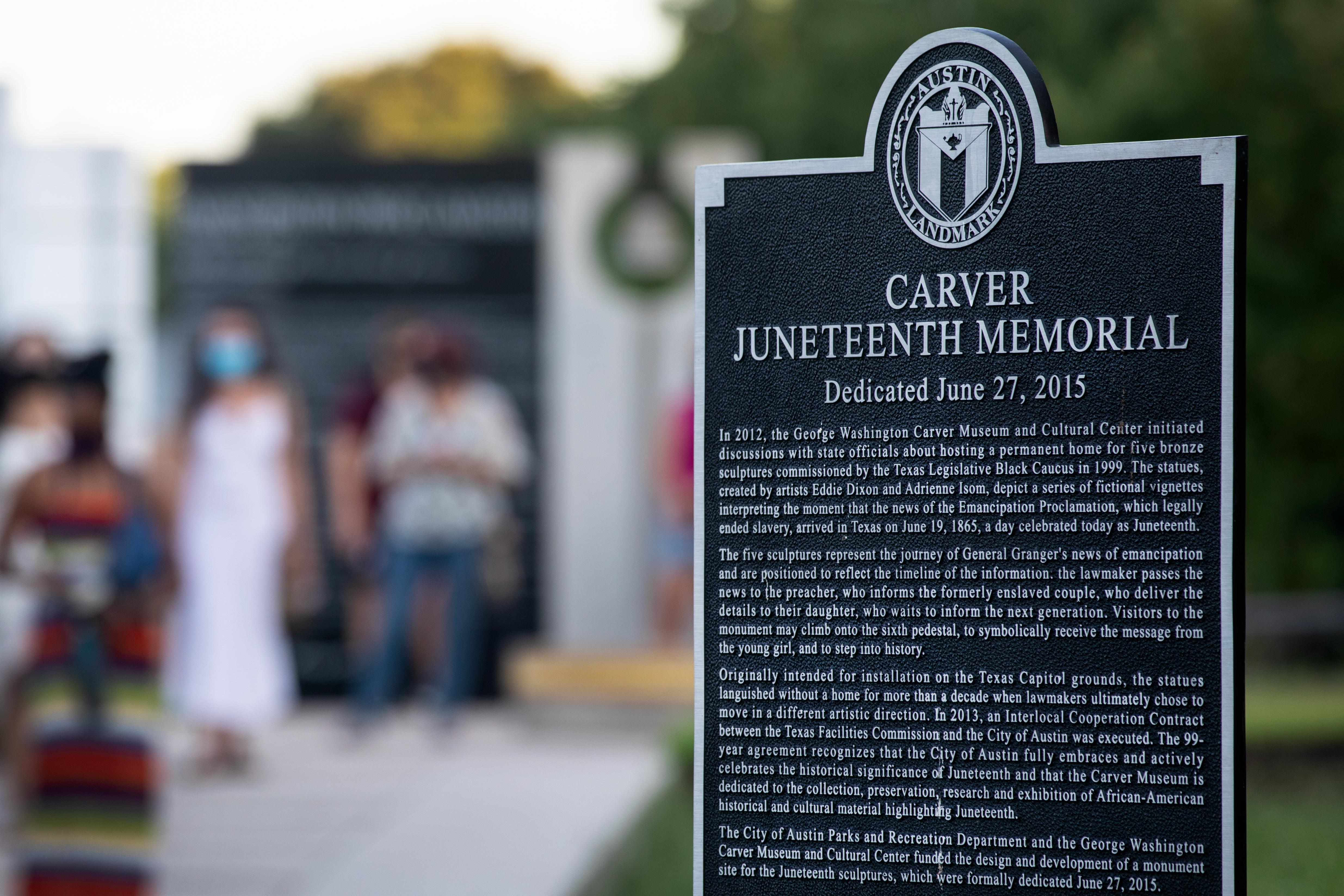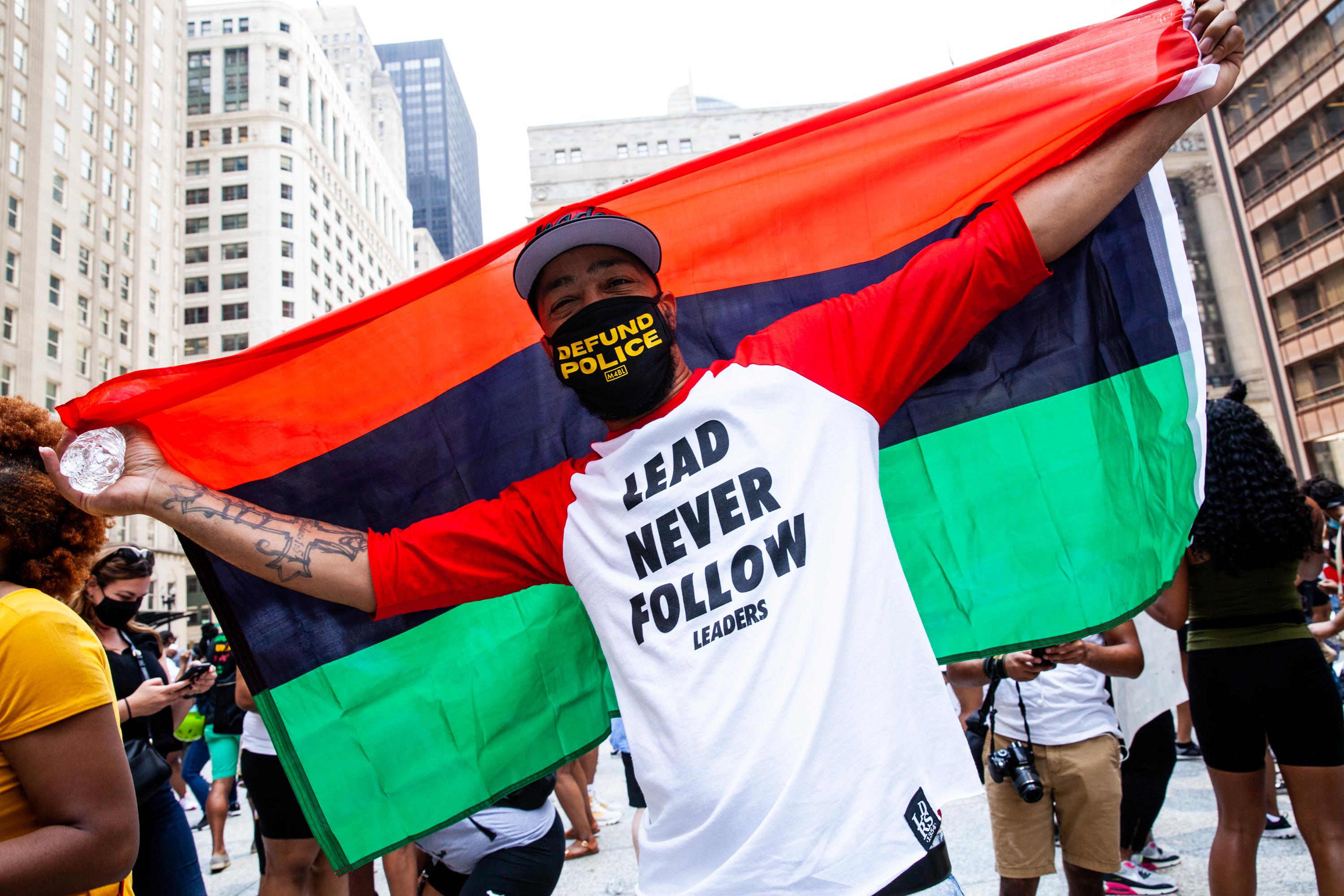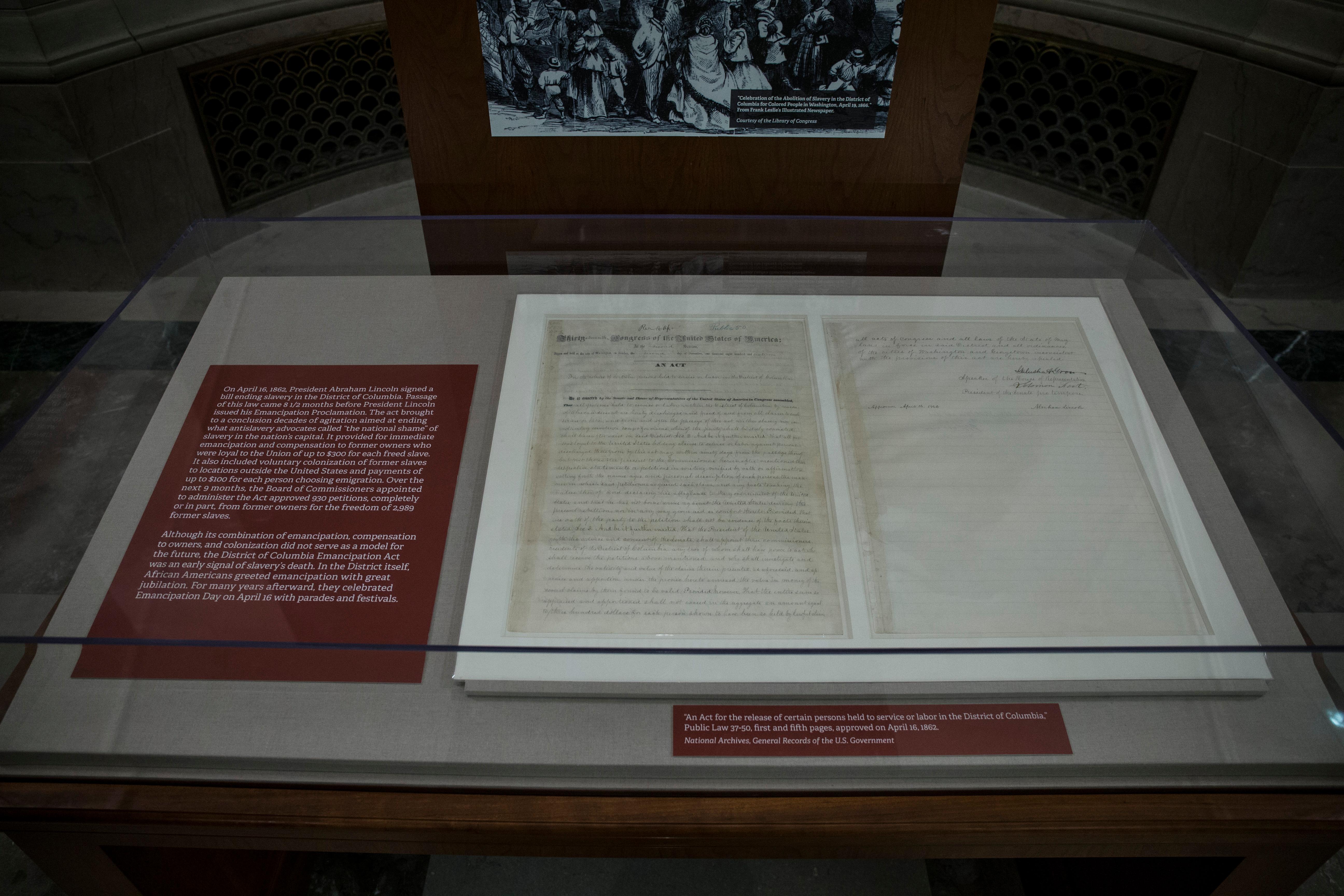Where Did Juneteenth Get Its Name? Details on the Federal Holiday
The name Juneteeth first appeared in 1903. The holiday has also been called Emancipation Day and African American Freedom Day.
Updated June 18 2024, 11:55 a.m. ET

As the civil rights movement in the U.S. continues to evolve and change, more people have started celebrating different aspects of African American history. The holiday Juneteenth was established to honor the day that the last slaves in the country were freed. They were freed two years after slavery was abolished.
But how did Juneteenth get its name?
Juneteenth, or Juneteenth National Independence Day, falls on June 19 of each year. The holiday was first recognized as a federal holiday in 2021, although not all states observe it the same way. Keep reading to find out the meaning behind Juneteenth and the various ways states honor the day.

Why is it called Juneteenth?
The name Juneteeth is a combination of "June" and "nineteenth." It was on that day in 1865 that Major General Gordon Granger of the Union Army arrived in Galveston, Texas to announce news of the Emancipation Proclamation. Officially, slavery had been abolished and the Civil War ended two years prior, in 1863.
Slave owners may have known that slavery was illegal at that time. But news traveled much slower back then so not everyone was aware of the news. They used people's lack of knowledge to keep the practice going for as long as possible.
It's unclear why Juneteenth was given this name, but according to AL.com, the name first appeared around 1903. It has also been called Emancipation Day and African American Freedom Day. With the new national recognition, the holiday is officially known as Juneteenth National Independence Day.
Juneteenth is now a federal holiday, but states observe it in different ways.
Juneteenth is now recognized as a federal holiday in the U.S. On June 15, 2021, the Senate unanimously passed a bill that would officially recognize the day as a public holiday. Shortly after, President Joe Biden signed the legislation, allowing it to become the nation's 11th federal holiday.
"Making Juneteenth a federal holiday is a major step forward to recognize the wrongs of the past," Senate Majority Leader Chuck Schumer said. "But we must continue to work to ensure equal justice and fulfill the promise of the Emancipation Proclamation and our Constitution."

While plenty of people were pleased with the government's decision to add Juneteenth to its lineup of federal holidays, not everyone was on board with the legislation.
Senator Ron Johnson previously objected to the move to make Juneteenth a federal holiday and said in a statement that it "seems strange" to do so.
"While it still seems strange that having taxpayers provide federal employees paid time off is now required to celebrate the end of slavery, it is clear that there is no appetite in Congress to further discuss the matter," he said.
Johnson continued by saying that he isn't going to object to the Senate's decision and that his objection for federal recognition doesn't mean he's against acknowledging the importance of Juneteenth. Instead, he claimed he was concerned about how much another federal holiday will affect taxpayers at the cost of $600 million per year.

Which states recognize Juneteenth as a paid holiday?
Juneteenth may be recognized as a federal holiday across the U.S., but states are still divided on how the day is observed. While some recognize June 19 as an official holiday, others merely “observe” the day as a notable moment in history. In 2023, at least 28 states as well as the District of Columbia have made it a point to recognize Juneteenth as a public holiday, per Pew Research.
In these states, government offices are closed and state workers are provided a paid day off. Some of the states that recently began recognizing Juneteenth as a paid public holiday for all state government workers include:
- Alabama
- Colorado
- Connecticut
- Georgia
- Idaho
- Illinois
- Louisiana
- Maine
- Massachusetts
- Michigan
- Minnesota
- Nebraska
- Nevada
- New Mexico
- New York
- Ohio
- Oregon
- Rhode Island
- South Dakota
- Tennessee
- Texas
- Utah
- Virginia
- Washington
- West Virginia
California, Pennsylvania, and North Carolina allow some state government workers to take Juneteenth off or use it as a floating holiday. When it comes to private employers, they generally aren’t required to provide employees with a paid day off, although some do. In some cases, employers might offer their employees a paid half day.